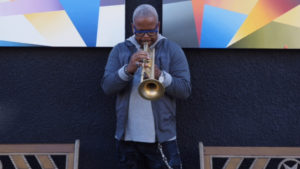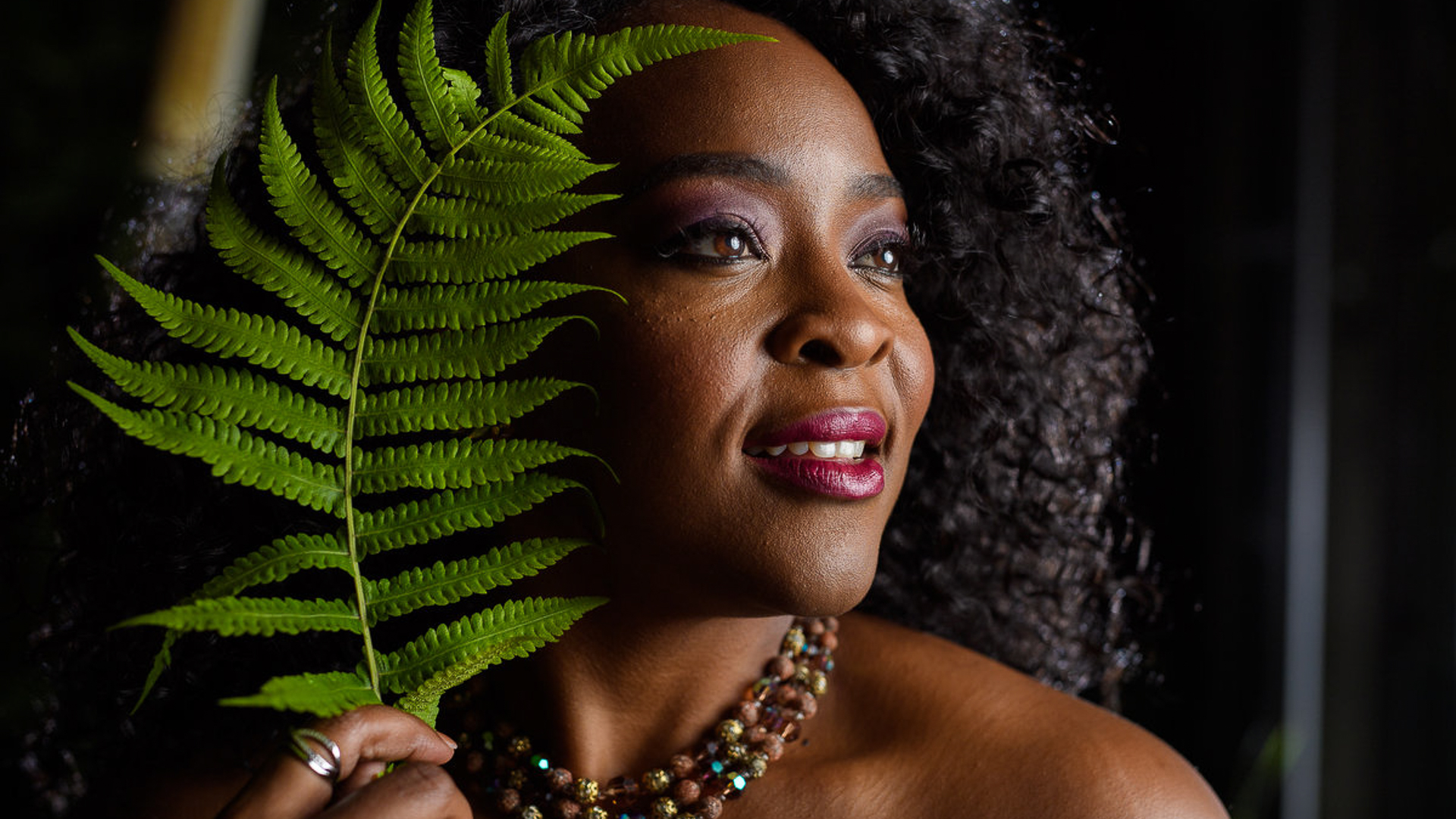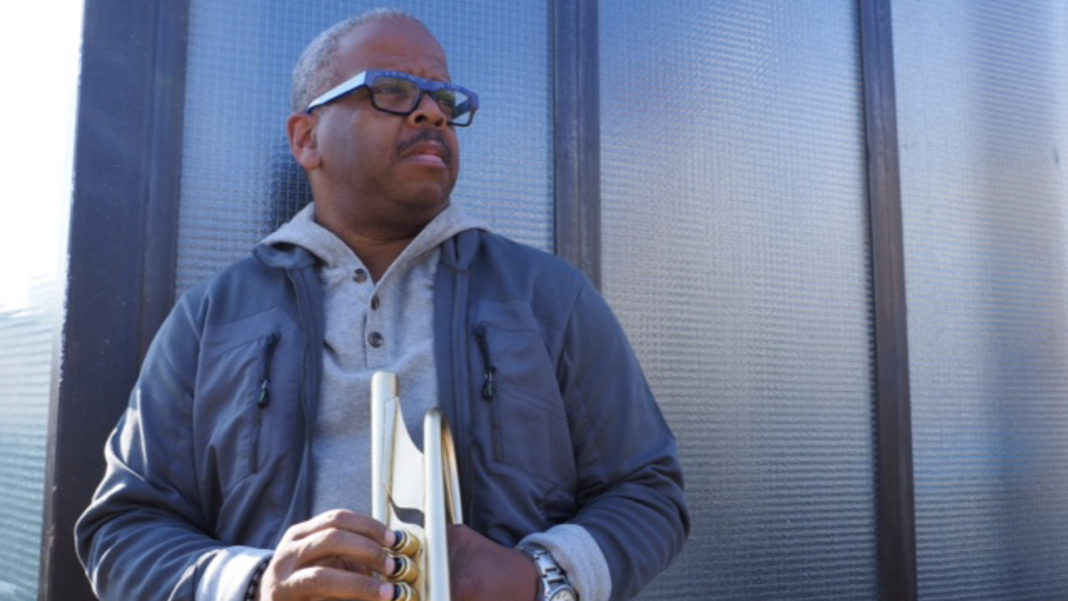It’s a good time to be composer/musician Terence Blanchard. Earlier this year he finally got his first Academy Award nomination for his score for Spike Lee’s BlacKkKlansman. He’s also scoring the upcoming film Harriet about freedom fighter Harriet Tubman. This Saturday he and his band, The E-Collective, will perform at the Playboy Jazz Festival. One week later his second opera, Fire Shut Up in My Bones, has its world premiere at the Opera Theatre of St. Louis. The opera is based on journalist Charles Blow’s memoir of the same name.
Given the diverse amount of things on his plate, I figured this was a good time to catch up with Blanchard. It had been four years since our last conversation and a lot has changed, both with his career and our country. He spoke to me by phone from St. Louis where he was about to see the first full rehearsal with singers and orchestra (called a “sitzprobe”) of the opera.

When we last spoke you and the E-Collective had just started collaborating. You had the album Breathless coming out. The title being a reference to Eric Garner’s last words when he died in a chokehold by a New York police officer. Subsequently you released a live album with them called Live, which found you and the band in cities where the abuse of power was at its most extreme.
What did playing in those cities give you as an artist and human that helps shape your perspective on America in 2019?
The best example I can give you how powerful that was is we were playing in Cleveland. A guy walked up afterwards and I thought it was going to be the normal conversation, “Why aren’t you playing with a jazz band instead of an electric band.” Instead he said, “I thought I was going to hear A Tale of God’s Will, but once you started playing it sounded angry.” Then he said “During the break you told us what the music was about. As I started listening to the rest of the show, my thoughts went when the guy who created God’s Will is this angry, then I have to rethink my position on gun control.” For him to share that with me was an extremely powerful moment.
[Note: A Tale of God’s Will had the subtitle Requiem for Katrina. This was music written for Spike Lee’s documentary When the Levees Broke: A Requiem in Four Acts.]
Jazz musicians seem to be addressing social injustice more prominently than other genres. Vijay Iyer’s Far From Over, for example does that. And the music seems more muscular. Why does jazz seem to be leading the call for change as it relates to social justice?
I think it’s always bene that way. You look at Max Roach’s Freedom Now Suite, the stuff [Charles] Mingus was doing, Miles [Davis] doing Jack Johnson. Even Louis Armstrong. He didn’t create some of the music, but he talked about it in some of his interviews. I think jazz musicians have a way of dealing with truth that is inherent in the music itself. In order to be a jazz musicians, you can’t lie to yourself. Either you are playing the scales and chords or you are not. Dealing with that type of absolute truth all the time carries over into your life. It makes you look at things with that kind of prism, if you will. Two plus two will always equal four – you can’t spin that into anything else. When you look at the social justice system, it’s rough.
The festival happens one week before the premiere of Fire Shut Up in My Bones. Is the festival a great opportunity to take a break and clear your head for a few moments?
Oh man, Playboy is just a good time to be there any time of the year. There are certain music festivals like the New Orleans Jazz & Heritage – Playboy is where you get to see many of your peers. I enjoy the shows just as much as the audience. It’s a great atmosphere to hear music and run into friends.

Singer Quiana Lynell is joining you for the Playboy Jazz Festival. You’ve mentored her after she showed up to join you for a gig in Poland at your manager’s suggestion. What does mentoring mean to you personally?
It’s huge. Huge. Because it is the mentors that actually open the doors for you and take you in and show you around. If you don’t get a chance to see how sausage is made, you’ll never be able to do it. You can approximate it, but it takes a huge role in being able to know down the myths, the folklore and just deal with the absolute truth. That’s what Art Blakey did for me. And by being in that band, automatically you were accepted in a family of musicians that would embrace you. Dizzy Gillespie, Clark Terry, Woody Shaw; all of them were extremely helpful to me.
What are some of those myths and folklore?
I guess mainly the thing is intuitive talent versus the hard work kind of things. When I got into the business I heard stories about how hard Dizzy and Clifford Brown worked. I even talked to Chick Corea about it. He said, “It ain’t no magic. It just takes a lot of time and practice.” That was one of the first lessons I really got to understand.
Next week will have part two of our interview with Terence Blanchard where he gets into details about Fire Shut Up in My Bones and its creation.











